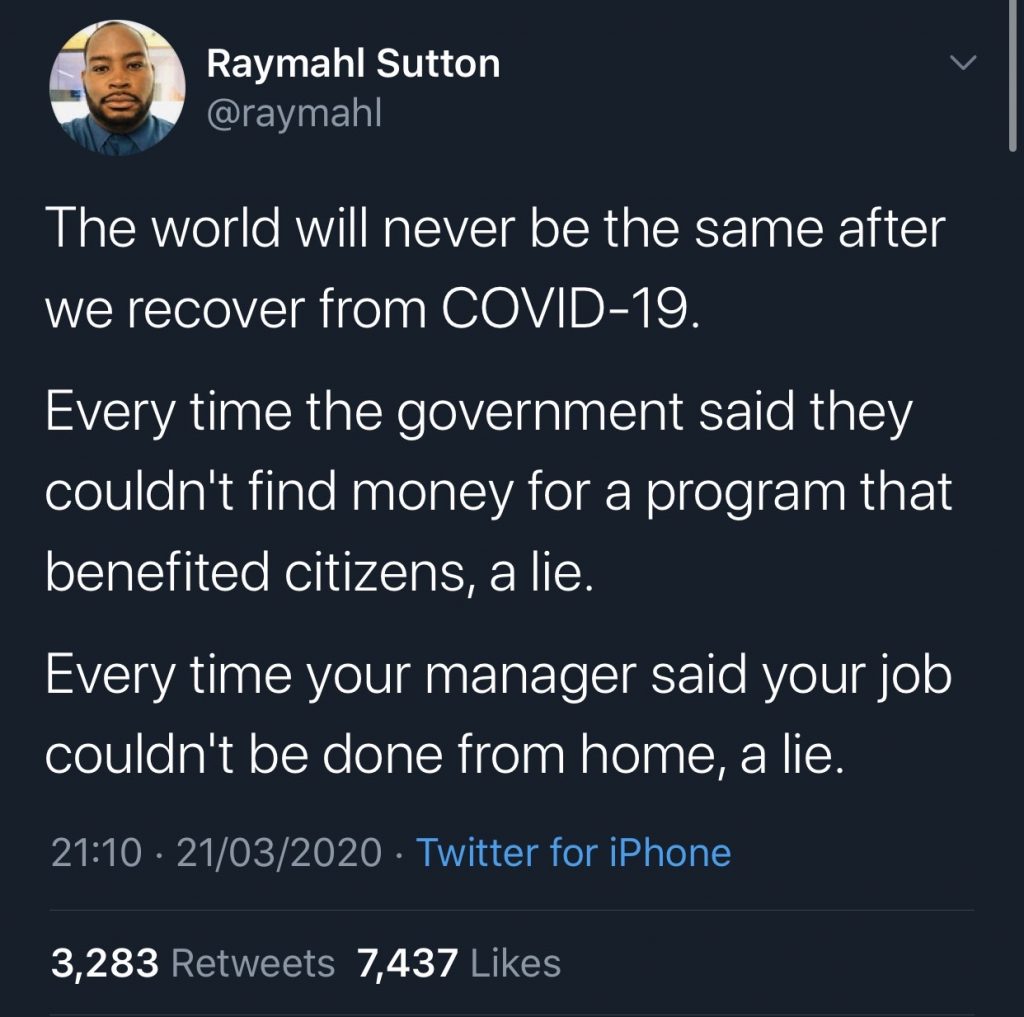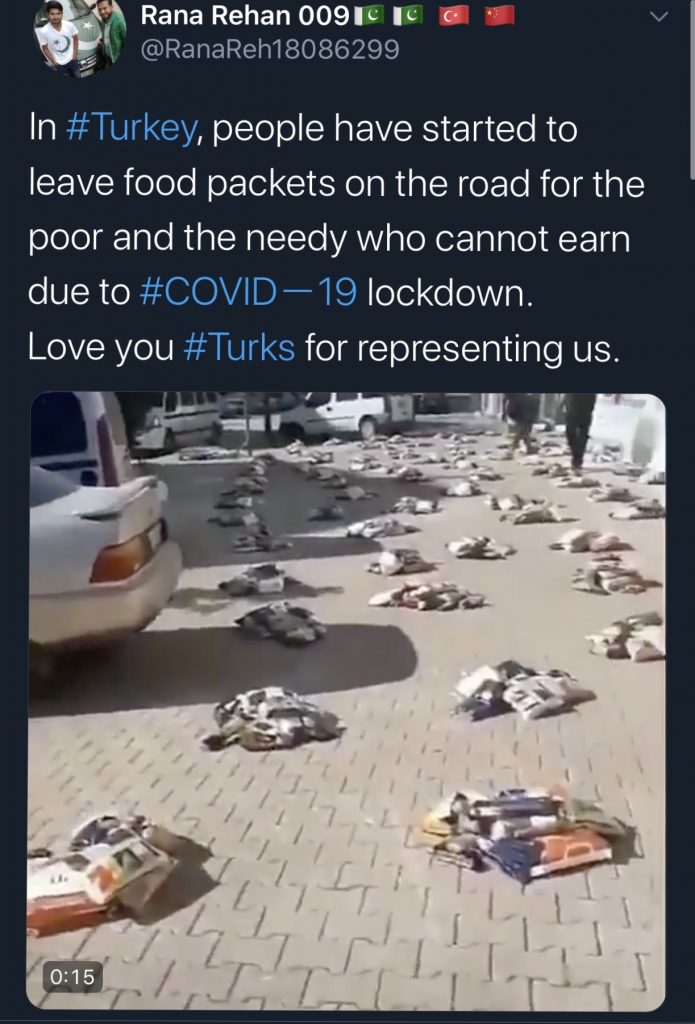For the first time in our lives, many of us are experiencing a degree of uncertainty that is unbeknown to us – we could even describe our lives as legitimately unpredictable. Usually the most routine of events become so unconscious to us that we take their regularity for granted – commuting to work, grabbing a coffee en route, doing a food shop and being able to get everything we need because not only do we have a regular income but these services are provided to us by a workforce who are reliable and present. However, since the pandemic all of this has become disrupted.
The need for social distancing in order to suppress the spread of the virus, has demonstrated quite succinctly how interconnected we all are as a species. We are an incredibly mobile and active population and arguably globalisation has made us this way. We depend on a continuous work rate from people who work in supermarkets, to hospitals to social services – many of whom are overlooked, overworked and undervalued. But what globalisation and modernity has also done is embed so many livelihoods in a system of precariousness, a system dependent on a multitude of factors. Thousands of people in this country, let alone worldwide, have to consider where their next meal will come from, making a choice between food or another expense. Rates of fuel poverty and food poverty are at an all time high in Britain, with Britain having the worst record of excess winter deaths in Europe apart from Ireland and one in four parents skipping meals so their child could eat. This is a situation that millions of people in the UK experience, and whilst some people are fighting over toilet roll to stockpile, foodbanks are rapidly running out of supplies to provide those in real need.
Pandemics, financial crashes, wars and conflict are all huge events which can mean our lives become uncertain overnight. Refugees who flee from violence have to abandon their houses, possessions and often everyone they know to seek physical safety, quite often instantaneously. Luckily, many of us have never had to experience such a traumatic situation but millions worldwide do and they receive almost no real support in doing so, whilst being shamed, stereotyped and degraded by mainstream politicians and the media.

Now that we ourselves are experiencing something extremely strange and uncomfortable, it must be something that we learn and grow from. Our individualistic culture means we often lack empathy, see other people as an enemy we need to compete with and forget to pause to recognise how lucky we are. But what this pandemic can teach us is that whilst people discriminate, catastrophes do not. At any point in our lives unexpected events can happen which result in everything we had planned or expected to be written off at the very least. It is easy to turn a blind eye when certain things don’t affect you, but let’s use this situation to reflect on what we ourselves might have taken for granted in the past and times where we may have lacked empathy.

So whilst we find ourselves at home for a longer duration than we are used to, with our freedoms of movement limited on lockdown and our favourite places to socialise closed, consider those who experience uncertainty on a daily basis and what kind of effect that has one someone’s mental health. I urge you to reflect on how as much as these times are frustrating for us, there are still so many things we are immensely lucky to have. Safety and security of self-isolating in heated and fully stocked homes, whilst it may become boring, is a privilege. Yes, we may have to cancel plans and expect to have a less busy schedule this summer, but this is just one summer out of the rest of our lives and the faster we take the measures to combat the pandemic the sooner this will be over.


